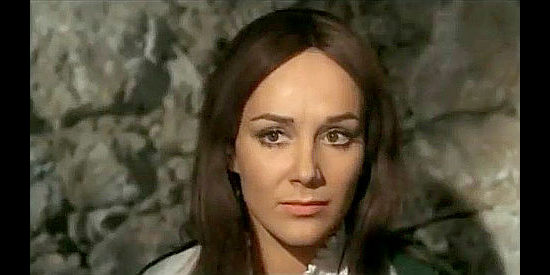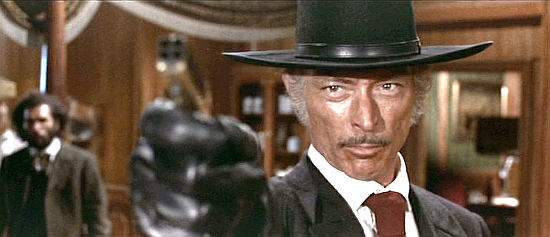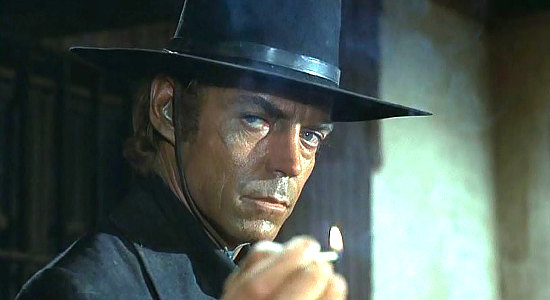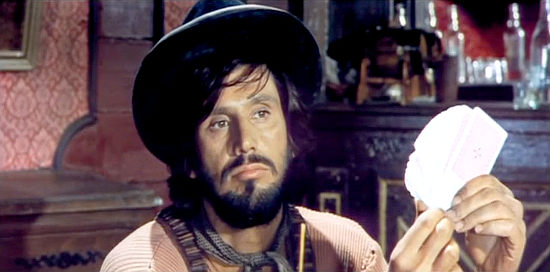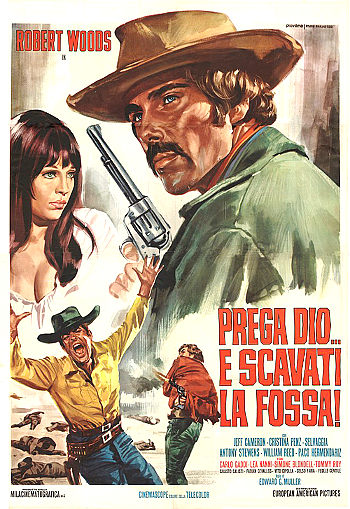 In 1889 Mexico, a brother and sister make a dash for freedom from an oppressive landowner.
In 1889 Mexico, a brother and sister make a dash for freedom from an oppressive landowner.
Both are gunned down. The sister is raped beside her dead fiancee before being killed.
Their mother travels to Texas to deliver the news to her remaining son, Fernando Camayo (Robert Woods).
He vows vengeance against the landowner, Don Enrique (Calisto Calisti). But more than that, he declares it’s time for all Mexican peons to enjoy the freedom he had to flee across the border to find.
But a revolution needs guns and ammunition, and Fernando’s solution to that problem is to find an old friend turned bandit named Cipirano (Jeff Cameron).
Cipriano’s glad to help, though he wishes Fernando would help he and his men by helping liberate a couple of banks and trains.
When Fernando declines, Cipriano decides to visit Don Enrique first, and make revenge pay by kidnapping his pretty daughter and demanding a ransom for her release.
That puts Fernando in a bind he didn’t expect, one complicated because Don Enrique has started hanging innocent peons and vows to continue until his daughter is returned.
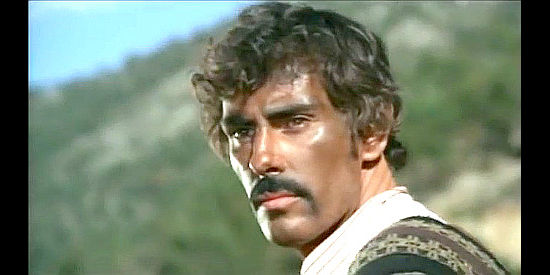
Robert Woods as Fernando Camayo, seeking freedom from oppression for the peons in Pray to God and Dig Your Grave (1968)
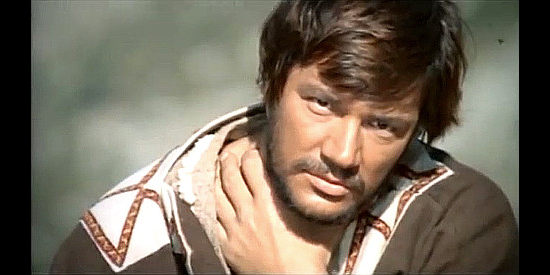
Jeff Cameron as Cipriano, Fernando’s former friend turned bandit in Pray to God and Dig Your Grave (1968)
Perhaps the best film — certainly the best Spaghetti — in which Demofilo Fidani was ever involved.
Okay, he didn’t direct, but this did mark his first outing as producer, and he also has a bit part as the father of the man who hopes to marry Don Enrique’s daughter.
Woods is the star of the show, but director Edordo Mulargia lures us in with demonstrations of the brutality of the Mexican ruling class and the plight of the peons.
Captured trying to flee, Fernando’s brother is buried to his neck and helpless as riders stomp his head to a pulp.
Later, when Fernando shows up, a Don Enrique henchman threatens to shoot a hungry toddler picking up pieces of bread from the ground unless Fernando comes out from cover.
It’s also a film that proves Jeff Cameron can act a bit, given direction, a decent script and a decent role.
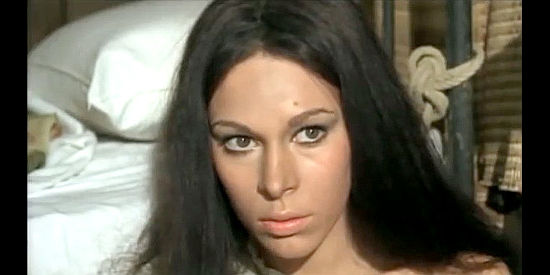
Selvaggia as Maria Carmen, daughter of a rich landowner kidnapped by a bandit in Pray to God and Dig Your Grave (1968)
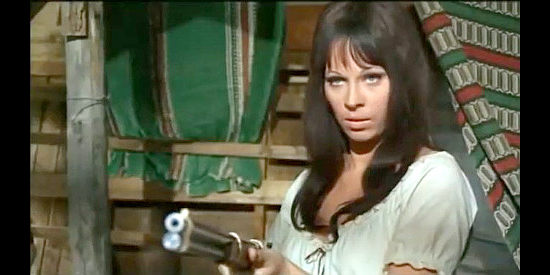
Cristina Penz as Consuelo, Fernando’s lover, deciding it’s time for her to take up arms in Pray to God and Dig Your Grave (1968)
Directed by:
Edoardo Mulargia
as Edward G. Muller
Cast:
Robert Woods … Fernando Camayo
Jeff Cameron … Cipriano
Selvaggia … Maria Carmen
Cristina Penz … Consuelo
Paco Hermandariz … Paco
Carlo Gaddi … Don Enrique henchman
Lea Nanni … Ascencion Camayo
Simonetta Vitelli … Don Enrique maid
as Simone Blondell
Carmelo Artale … Priest
Calisto Calisti … Don Enrique
as Anthony Stevens
Vito Cipolla … Juan, Ascencion’s fiancee
Celso Faria … Ignazio Camayo
Rino Sentieri … Charles Prescott
as William Reed
Also with: Lino Coletta, Paolo Figlia, Fedele Gentile, Mario Pennisi, Giovanni Ivan Scratuglia, Tommy Roy, Fabian Cevallos, Demofilo Fidani
Runtime: 86 min.
aka:
Prega Dio… e scavati la fossa
Music: Marcello Gigante, Alessandro
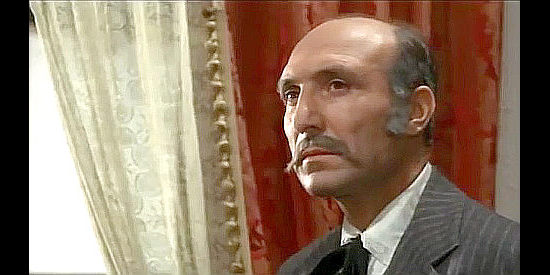
Calisto Calisti (Anthony Stevens) as Don Enrique, the wealthy landowner at the center of the problems in Pray to God and Dig Your Grave (1968)
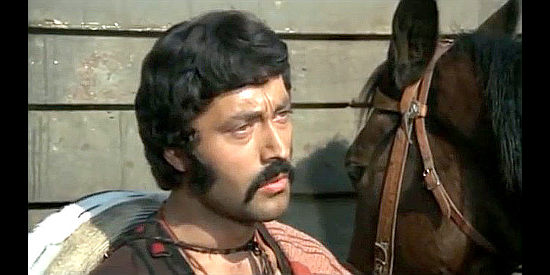
Paco Hernandez as Paco, Fernando’s friend and faithful sidekick in Pray to God and Dig Your Grave (1968)
Memorable lines:
Prescott to his son Charles: “You mind your own business, son. You may judge when you’re the master in this house.”
Fernando: “Stupid idiots. I told them they should leave Mexico. ‘But Mexico is our home, Fernando.’ Slaves! Here they could have found work and a decent life. But now they’ve all been murdered. I told them how it would be. And now I must kill for them.”
Fernando: “No one wants a war here. But if the Mexican people don’t end this oppression now … well, there will be no more Mexican people. The peons have strength — strength in number.”
Fernando: “You are a peon … just like the rest of us.”
Cipriano: “I am not a peon, friend!” He shoots a bottle. “This is what I am: a pistolero.” He indicates his pistol. “This is my peon.”
Paco, watching Cipriano ride off: “A bandido. A stinking bandido.”
Fernando: “No, Paco. Anyone who has to live as poorly as we do can easily become like Cipriano.”
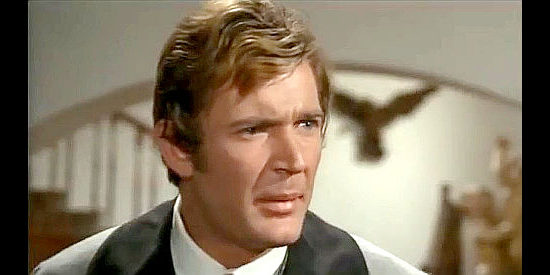
Rino Sentieri (William Reed) as Charles Prescott, questioning the cruelty to the peons in Pray to God and Dig Your Grave (1968)
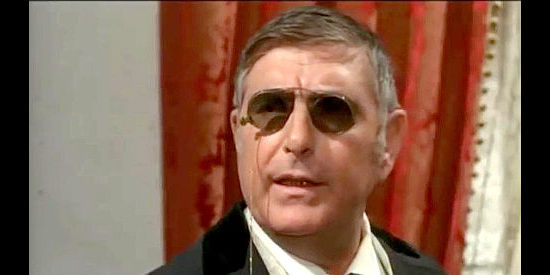
Demofilo Fidani as Mr. Prescott, father of Maria Carmen’s fiancee in Pray to God and Dig Your Grave (1968)
Trivia:
Fidani’s daughter, pretty Simonetta Vitelli, makes her screen debut in this film as Simone Blondell. She plays Don Enrique’s maid and is seen serving drinks a couple of times, though she had no dialogue in the English print I watched. There isn’t even a closeup of those pretty blues eyes. She’d go on to appear in a number of films directed by her father.
This also marked the first major role in a Spaghetti for Jeff Cameron, who had already appeared in a host of Westerns and Sword and Sandal films, though often in an uncredited capacity. He would go on to star in several Spaghettis, mostly forgetable, low-budget affairs.
Edorado Mulargia directed 17 films, including eight Spaghettis. Others included “Blood at Sundown,” “Go with God, Gringo” and a pair of Django films — “Don’t Wait, Django … Shoot” and “Viva! Django,” his last Spaghetti in 1971.
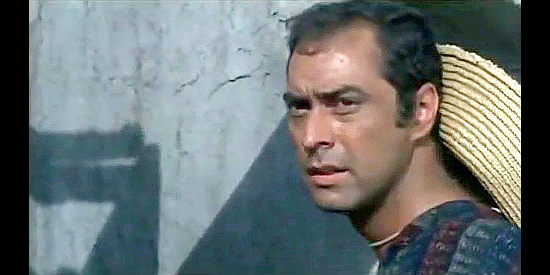
Celso Faria as Ignazio Camayo, Fernando’s brother, about to meet a cruel fate in Pray to God and Dig Your Grave (1968)
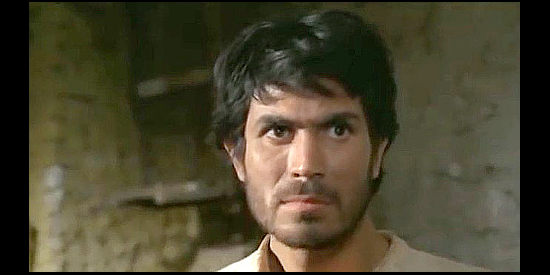
Vito Cipolla as Juan, Ascencion’s fiancee, itching for freedom in Pray to God and Dig Your Grave (1968)
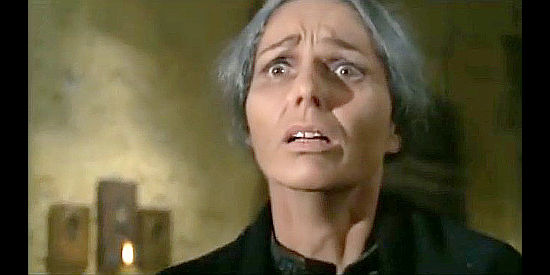
The mother of Fernando, Ignazio and Ascencion reacts to the sound of gunfire in Pray to God and Dig Your Grave. Anyone know who plays this part? (1968)
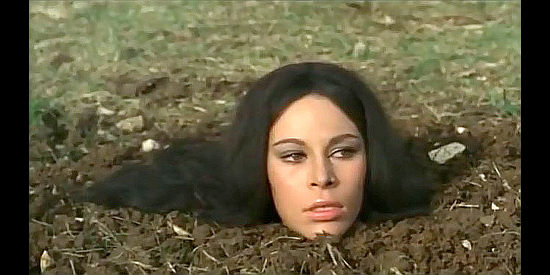
Selvaggia as Maria Carmen, up to her pretty aristocratic neck in trouble in Pray to God and Dig Your Grave (1968)
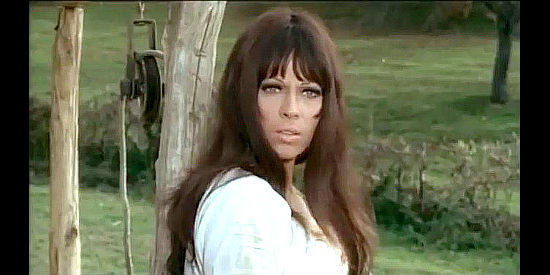
Cristina Penz as Consuelo, concerned about Fernando’s plans to seek revenge in Pray to God and Dig Your Grave (1968)
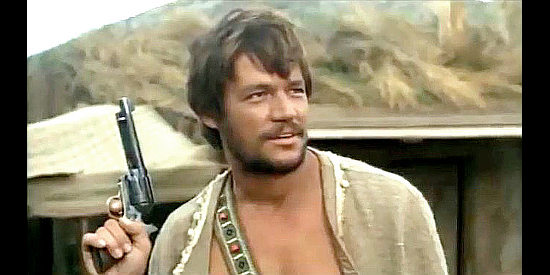
Jeff Cameron as Cipriano, a bandit ready to fight for his right to a ransom in Pray to God and Dig Your Grave (1968)
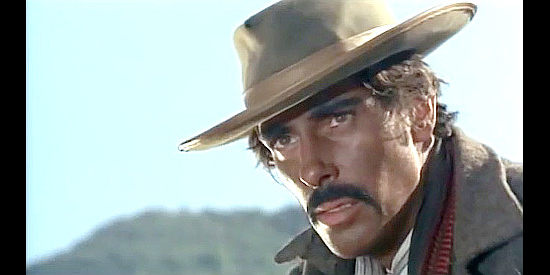
Robert Woods as Fernando Camayo watching a landowner toss bread to the peons in Pray to God and Dig Your Grave (1968)

